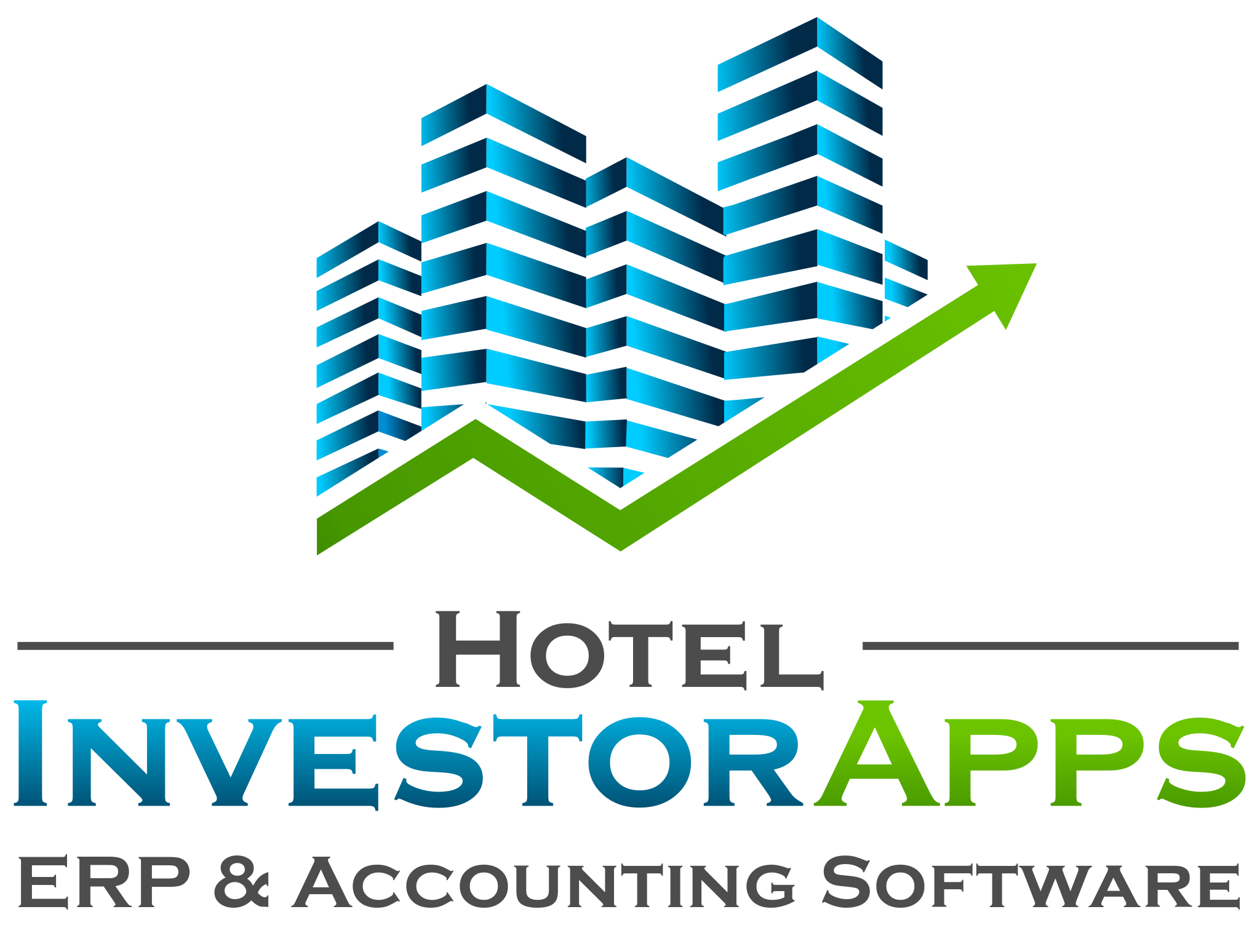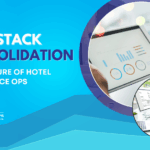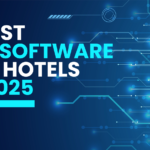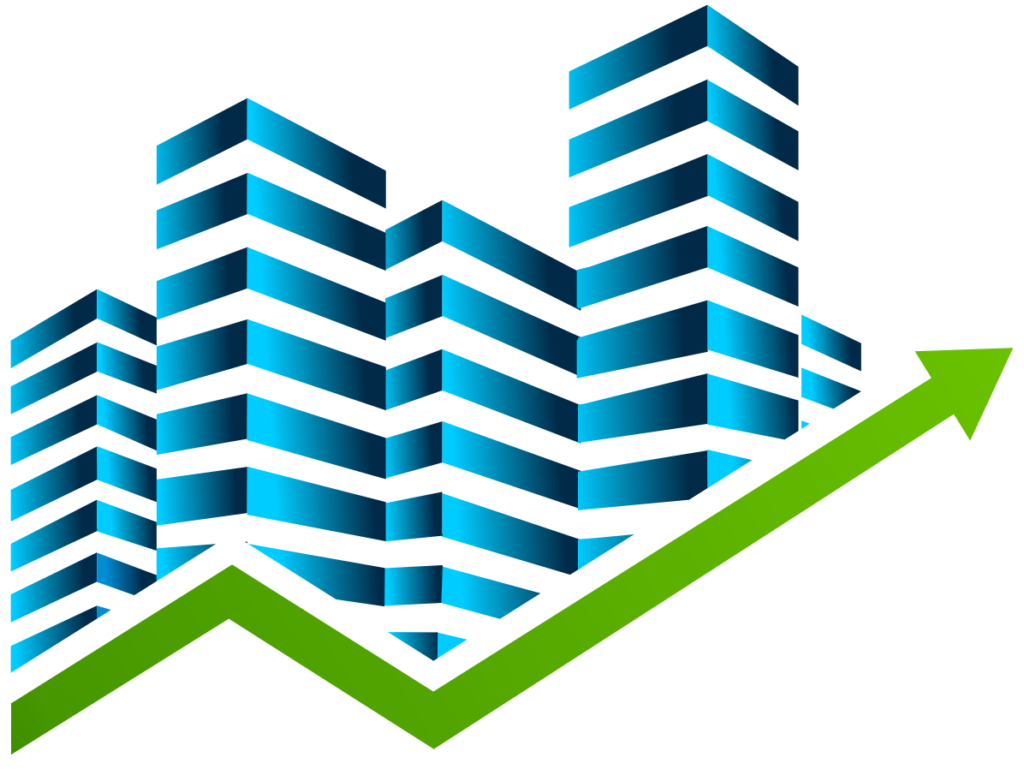Hospitality may start at the front desk, but profitability starts in the back office. While your guests may get new flashy keyless entry and streamlined services, your finance teams often still deal with spreadsheets, dozens of different logins, and time-consuming workarounds.
The result? A fine-tuned guest experience, but the teams responsible for forecasting, budgeting, and driving ROI aren’t always equipped with the real-time insights or modern tools they need to control spend or maintain margins..
That’s why forward-thinking hotel management companies—especially in today’s economic climate—are looking into opportunities that lie in advancing the back office, where strategic decisions, cost controls, and long-term growth take shape.
Key Takeaways |
|
The Momentum Toward Consolidation
The desire to simplify complex back offices is not something entirely new. But it was front and center at both HITEC and The Lodging Conference this past year. Those who attended couldn’t help but pick up on the chatter that hotel management companies are actively looking to consolidate their tech stacks.
They don’t want to pile more systems on top of an already fragmented tech landscape. They want platforms that can simplify, centralize, and scale with their business.
The drive for this shift is a response to the realities hotel leaders are facing today, such as:
- Intensifying economic pressure. Cost containment has become a top priority, but you can’t control what you can’t see. Consolidation gives finance teams the visibility they need to track spending across properties, eliminate redundancies, and make smarter purchasing decisions.
- Persistent labor shortages. With leaner teams, hotel operators need systems that reduce manual work and free up staff to focus on higher-impact tasks.
- Harnessing the cloud adoption that’s already in place. Most companies have completed the foundational move to the cloud, making tech stack consolidation not just possible, but achievable without a heavy lift.
For many hotel management companies, tech stack consolidation isn’t just a conversation anymore—it’s the next logical step toward a more efficient, resilient operation.
When Complexity Becomes the Problem
Most hotel companies already use a variety of systems to keep things running, from booking engines and POS systems to accounting platforms and BI dashboards.
While many of these solutions do bring value, over time, they can create more problems than they solve:
- Software doesn’t integrate—or doesn’t integrate well.
- Disconnected systems create data silos, forcing teams to rely on Excel exports just to generate portfolio-wide reports.
- Core processes—like payroll, project accounting, and corporate financials—are often managed in separate tools.
- Each system requires separate logins, training, and maintenance.
- Manual workarounds become the norm.
- More systems = more potential points of failure.
What began as a collection of helpful tools quickly evolved into a complex maze that finance teams must navigate daily just to keep operations running. It’s not just inefficient. It’s unsustainable.
Immediate Benefits of Tech Stack Consolidation
When hoteliers replace a patchwork of back office systems with one unified platform like HIA, the payoff is immediate and measurable. Here are five wins hotel management companies are seeing right out of the gate:
1. Real-time, portfolio-wide visibility
Forget static reports, Excel workarounds, and logging into multiple systems just to see how your properties are performing. HIA’s live dashboards give your teams an instant, accurate view of performance. Whether you’re monitoring an individual hotel or your entire portfolio, you can quickly toggle between property-level, corporate, or business intelligence views.
Instead of piecing together data from disconnected tools—like one system for project accounting, another for business intelligence, and a third for purchase orders—you get a fully integrated picture across every function.
You don’t just get more data. You get connected, actionable data with just a few clicks.
2. Faster, more accurate close cycles
Disconnected tools slow everything down—especially during monthly close. When payroll data doesn’t automatically sync with your accounting system and has to be entered manually, you’re not just wasting time—you’re opening the door for manual errors.
HIA eliminates that by consolidating your core financial processes into one platform. Automated bank reconciliation, centralized ledgers, and built-in approval workflows mean fewer mistakes, faster closes, and cleaner audits. It’s not just about saving time.
It’s about freeing your team to focus on forecasting, not fixing.
3. Easier training with less tech fatigue
When your tech stack is fragmented, every new hire has to learn five systems before they can do one job. That’s not just inefficient—it’s a recipe for errors and delays. And in an industry with high turnover, the cost of constant retraining adds up fast.
HIA simplifies onboarding with one intuitive system and hotel-specific workflows already built in. Teams get up to speed faster, training is less of a burden, and day-to-day work is easier to manage—no matter who’s on the schedule that week.
4. Stronger data governance and fewer security risks
Every disconnected tool introduces risk. With fewer logins, better role-based access controls, and one secure system of record, your organization can reduce vulnerabilities and ensure compliance across the board.
Standardizing property and corporate accounting within a single platform also means fewer handoffs, fewer inconsistencies, and a dramatically lower chance of misalignment across entities.
These aren’t long-term promises—they’re immediate wins that come from removing the friction and fragmentation that slows down your teams.
5. Better communication and alignment across teams
When different departments—or even different properties—use their own systems and naming conventions, alignment breaks down. Strategy turns into guesswork. Reporting gets messy. And accountability starts to slip.
HIA creates one source of truth across your entire organization. Whether it’s standardizing vendor names (so “ABCo” and “A Better Co.” don’t show up as separate line items) or aligning property-level reporting with corporate and ownership views, everyone is working from the same consistent data set.
Get Clarity Over Chaos with the Only ERP Built for Hospitality
Tech stack consolidation isn’t just about cutting down on tools—it’s about cutting through the noise and making your solutions work for you. With Hotel Investor Apps, you get that clarity. Clarity in your financial data. Clarity in your operations. Clarity across every level of your organization.
HIA’s ERP platform unifies your accounting, business intelligence, purchasing, reconciliation, and more—giving you the visibility to track what matters and the automation to work more efficiently.
This isn’t just modernization—it’s future-proofing. If you’re ready to simplify your tech stack and strengthen your operations, request a demo today.

Jaime Goss has over a decade of marketing experience in the hospitality industry. At Hotel Investor Apps, Jaime heads up marketing initiatives including brand strategy, website design, content, email marketing, advertising and press relations.










